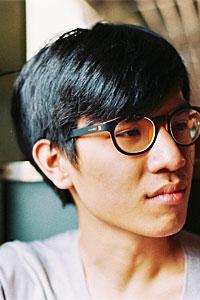I recently watched Netflix's Death Note adaptation, officially released last Friday on the streaming site. Based on a famous Japanese manga series, the film revolves around a young man's twisted crusade for justice after having received a special notebook -- the titular death note -- that has the power to kill anyone whose name has been written in it, provided the writer knows their face. Fed up with the many injustices in the world, the young man -- named Light -- uses the note to kill bullies, criminals and even corrupt officials from around the world under the alter-ego Kira, earning a cult-like following from those who agree with his extreme brand of justice.
The movie is, admittedly, not that great, with poorly-cast actors and a boring script. But that's not the point. In many ways, Death Note is the story of the anger and frustration young people have towards the injustices of the world they are born into, but are powerless to change. This narrative of fed-up youth raging against the oppression of their elders in power -- and the systems and beliefs they created -- is one that is playing out across the world today.
I thought of Joshua Wong, the teenage leader of Hong Kong's youth-led pro-democracy movement, who was detained and jailed by police a little over a week ago amid a protest demanding free elections, held days before Chinese leader Xi Jinping's visit to celebrate the 20th anniversary of Hong Kong's handover from Britain. Wong has been arrested by authorities on multiple occasions for protesting in favour of Hong-Kong's independence, and was detained in 2016 at Thailand's Suvarnnabhumi Airport upon arrival to speak at an event commemorating the anniversary of the Thammasat Massacre.
I thought of student-activist Netiwit Chotiphatphaisal, who became the centre of controversy when he and a group of other students protested against Chulalongkorn University's freshman pledging ceremony. Citing the intentions of King Rama V in abolishing the act of prostrating to promote equality, Netiwit and his friends opted to bow in front of the King's statue at the ceremony instead, prompting furious responses from professors, one of whom was photographed wrestling one of the protesting students to the ground with a headlock, as well as recorded issuing forceful and aggressive statements while being restrained by other professors.
I thought of activist Jatupat Boonpattararaksa, or Pai Dao Din, who was sentenced to two years and six months in jail under lese majeste charges. The recipient of the 2017 Gwangju Prize for Human Rights, the activist was arrested for the act of sharing a BBC Thai article, despite it being shared over 2,800 times by various people, who were never prosecuted. Critics of the military government and humans rights activists have widely condemned Jatupat's conviction, saying that the activist was singled out due to his past attempts at criticising the regime.
As we see the best of us try and fail time and again to appeal to those in power in the name of progress, it is only natural for my generation to feel a certain anger and resentment as much towards those in power as our own apparent helplessness in the entire situation. It is easy to fantasise -- in our darker moments -- about the things we would change should we ever possess the absolute power to do so. Light had that power in the form of the death note, and with it he chose the easiest option: to keep erasing everyone he thought was in the way of his idealised world.
A peace achieved through violence can only ever be sustained by violence. As Light continues to rationalise his actions and kill more and more people just to cover his own tracks, he unwittingly perpetuates the cycle he wishes to break free of.
When faced with the blatant injustices of the kind faced by Wong, Netiwit and Jatupat, it is easy to lash out with venom and violence. It is easy to resort to underhand tactics and gaming the system in order to win. But that will only make us like those who came before, repeating the mistakes that led to the very hopelessness we feel today. Like the young martyrs of the new generation, it is not enough for us to be right, we must have the courage and strength to be better.
Kanin Srimaneekulroj is a feature writer of the Life section of the Bangkok Post.
